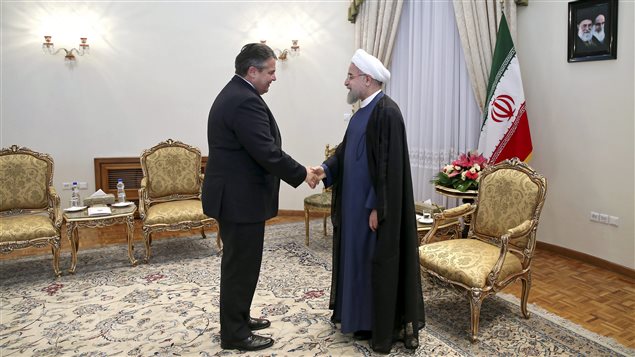Iranian Canadians watched closely as the delegation from their homeland negotiated intensely with the P 5 + 1, (that’s the five permanent members of the United Nations Security Council; France, the United States, the United Kingdom, Russia and China, plus Germany, to come to a deal on halting the Iran’s nuclear ambitions in return for the lifting of sanctions.
“If you were in Iran would you participate in the celebrations?”
An agreement was finally announced on July 14th, 2015 and there was celebrating in the streets of Tehran. Iranian Canadians, however, are not necessarily jumping for joy. Arsalan Kahnemuyipour, president of the Iranian Canadian Congress, explains some of the nuances in the responsed to a survey the organization invited members to participate in.
ListenThe survey is a tool to give a range of opinion and not speak on behalf of the membership Kahnemuyipour clarifies. The Iranian Canadian Congress, he explains, is a non-profit, non-partisan and non-religious organization. It was established in 2007, to represent the interests of Iranian-Canadians and encourage their participation in Canadian society.
The ICC has over 1500 members with the majority residing in the Greater Toronto Area. Kahnemuyipour says the statistics reveal there are approximately 150,000 Iranians living in Canada, but he says it is more likely double that as many do not want to identify with an ethnic group for the purposes of government survey.
In the most recent survey, concerning the historic deal reached in Vienna, Arsalan Kahnemuyipour says they received fewer responses, almost by half. This was even though the congress took a little more time to translate the questions into Persian, and provided more flexibility in responses. The snapshot, however, can help to draw some conclusions:
Slightly less than the 81 per cent who were in favour of the negotiations, have slipped to 78 per cent that are pleased with the outcome. The reasons given were fomost the opportunity to avert another war in the region that would engulf the Iranian people, The economic benefits that will accrue were another reason and ending a losing endeavour in pursuit of the nuclear program was another reason expressed.
When asked about the Canadian government’s official reaction,that Canada would wait to judge, and would do so based on Iran’s actions, not the words in the agreement, the majority, 64 per cent were did not support this stand, but 22 per cent did with 13 per cent abstaining.
When asked if they would have celebrated if they were in Iran, and joined the crowds in the streets, a smaller majority responded yes. 57 per cent said they would have celebrated, 26 per cent said no, and 18 per cent said they weren’t sure. Arsalan Kahnemuyipour says the opportunity to just gather, male and females together spontaneously, would be hard to resist, however, others are concerned about the possibility of a vicious crackdown on those who are celebrating. So the ongoing social tensions are real and dangerous.
Kahnemuyipour says he heard chants in Iranian that would translate to “Our next deal; our civil rights!” So evidence of a growing movement demanding freedom, and the release of members of the green movement illustrates the ongoing social tensions are real and dangerous. Kahnemuyipour says, “There is a significant portion of the population which feels that the nuclear issue essentially blocked any discussion of any other demands that the Iranian population might have so some might feel that this could lead to an opening while others of course are very hesitant to believe that because they feel that this might give the regime the upper hand and they might actually crush any kind of demands of other sorts.”







For reasons beyond our control, and for an undetermined period of time, our comment section is now closed. However, our social networks remain open to your contributions.